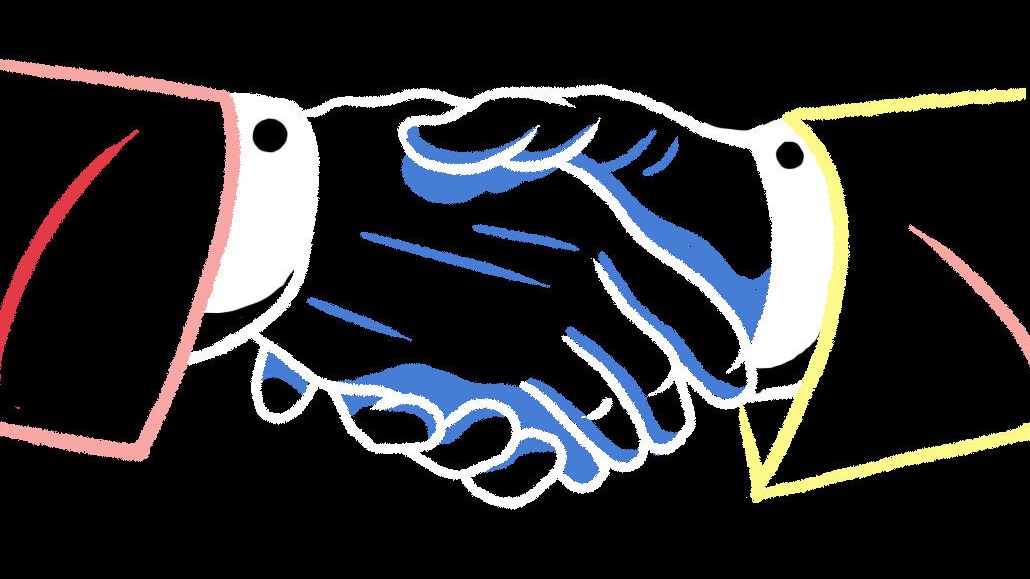Secure your place at the Digiday Publishing Summit in Vail, March 23-25
Why Fandom is investing in live event programming for its DreamHack partnership

On April 7, the media and entertainment network Fandom is kicking off a year-long agreement with gaming festival series DreamHack.
By centering the partnership around live event programming featuring Fandom intellectual properties and talent, the media company is demonstrating the value of its recent acquisitions — and exploring a potentially lucrative new revenue stream for gaming and esports media. The exact terms of the agreement were not made available.
Fandom and DreamHack have been working together in an unofficial capacity since November 2022, when they held an “Apex Legends” tournament in collaboration with Monster Energy.
At this weekend’s DreamHack event in San Diego, Fandom will take its collaboration with the organization a few steps further. Fandom producers and editors will participate in live entertainment programming on the event’s main stage, and DreamHack is creating an official Fandom wiki centered around the long-running festival and its history. The effort will also be supported on-site branding, as well as potential editorial content on Fandom websites such as Gamespot and Giant Bomb.
“San Diego is really the pilot for our partnership,” said Fandom vp of experiences and custom solutions Isaac Ugay, who added that the arrangement will serve as a model for what the two might do at future DreamHack events in Dallas in June and in Atlanta in December.
Representatives of both companies declined to share specific financial details regarding the partnership, but stressed that revenue generation and measuring ROI are not primary concerns. It’s the first time Fandom is leveraging its recently expanded portfolio of gaming brands to create a real-life fan experience.
“When we went into this partnership together, it wasn’t driven by ‘how do we make money from it,’” said Larry Settembrini, vp of global brand partnerships for DreamHack parent company ESL FACEIT Group. “It was driven by, ‘what can we do together to create a collaboration that brings both of our worlds together?’”
As media revenue streams such as advertising dry up, many dedicated gaming and esports media companies have shuttered over the past year. While Fandom’s destiny is not tied explicitly to gaming and esports — its wikis cover encompass all facets of popular culture, and it owns websites like TV Guide in addition to its gaming media properties — gaming accounts for the largest share of its fan base.
“We have a lot of evergreen wikis for gaming, because they’re so large and have such massive fan bases,” said Fandom director of sales research and insights Alexandra Saraniti, who told Digiday that an average of 17 million Minecraft fans read Fandom content every month.
So, for today’s beleaguered gaming and esports media companies, Fandom’s success in striking a live events partnership with DreamHack could represent a promising new revenue stream. Media networks like Fandom offer an alternative to individual influencers for brands looking to reach the gaming audience, with arguably more diverse and distributed audiences.
“We often say this with advertisers: You can have 5-10,000 concurrent viewers on Twitch, which is great — but obviously, we would dwarf that amount of people in a single day, just in terms of visitors to Dexerto, let alone over a month,” said Mike Murphy O’Reilly, global head of media and brand partnerships at Dexerto. “So the scale is much bigger, and the diversity is definitely much greater.”
Fandom will soon be joined by other gaming and esports media companies in the live event programming arena — including Dexerto.
“It’s something we’re looking to do either later this year or early into the next,” O’Reilly said. “We look at where it makes the most sense to our fans for us to turn up. It’s less about ‘are we at events?’ and more about the value we provide in being there.”
More in Marketing

WTF is Meta’s Manus tool?
Meta added a new agentic AI tool to its Ads Manager in February. Buyers have been cautiously probing its potential use cases.

Agencies grapple with economics of a new marketing currency: the AI token
Token costs pose questions for under-pressure agency pricing models. Are they a line item, a cost center — or an opportunity?

From Boll & Branch to Bogg, brands battle a surge of AI-driven return fraud
Retailers say fraudsters are increasingly using AI tools to generate fake damage photos, receipts and documentation to claim refunds.








